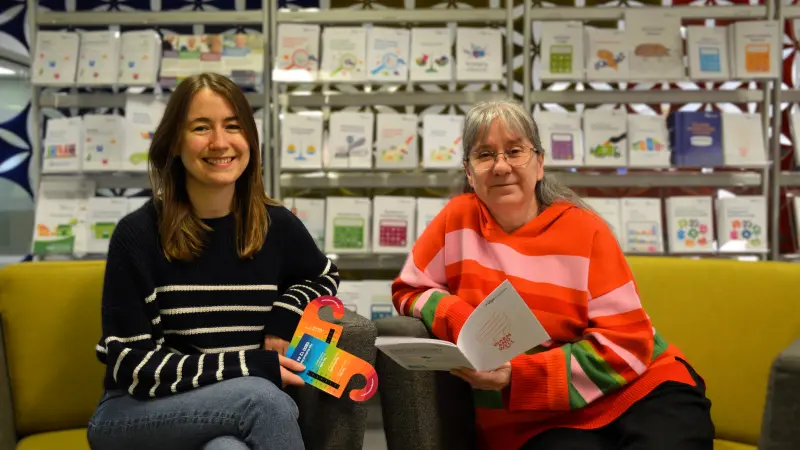Blog: Embracing equity in dementia
It’s International Women’s Day 2022 and the theme for this year is “Embracing Equity”.
We know that dementia can affect anyone. However, women are more likely to live with dementia than men, and women that do live with dementia may experience additional challenges that can compound their experiences. Women are also more likely to be unpaid carers and/or work in adult social care, meaning dementia may affect them in a multitude of different ways.
For International Women’s Day, we’re shining a spotlight on how women may experience dementia and are making recommendations for how equity can be embraced within dementia.
Approximately 67% of people living with dementia in Scotland are women, and in 2021, two thirds of the 6,046 people who died nationally because of dementia were women. Age is one of the leading risk factors for dementia and, on average, women live 3-5 years longer than men, so it makes sense that age could play a role in why women are disproportionately affected. Age isn’t the only risk though – there are other, interconnecting social factors that may influence how women experience dementia.
Caring responsibilities, stress and disparate access to education and financial resources can all impact brain health, and these in turn often disproportionately affect women. Age Scotland’s recent policy briefing shows that in Scotland, 1 in 5 single female pensioners live in relative poverty, with the gender pension gap thought to be around 38%, and that women over 55 are more likely to have a long-term health condition than not. Financial strain and health concerns can impact women’s general health and wellbeing and exacerbate risk factors for dementia.
Caring responsibilities, and the associated stresses that can come along with caring, are also more likely to impact women. Although many men are also unpaid carers, the number of women in an unpaid caring role is high: in fact, 1 in 3 women aged between 55 and 64 were unpaid carers in Scotland in 2023. Caring responsibilities can impact women’s capacity to participate fully in employment, which can contribute to unequal earnings and pension inequality, again, impacting women’s general health, wellbeing and quality of life. This inequality doesn’t just exist when it comes to unpaid caring. Women are also much more likely than men to work in a paid social care role, with research conducted in 2020 showing that 8 out of 10 adult social care staff in Scotland were women. In 2021, The Independent Review of Social Care in Scotland reported that the social care workforce is “undervalued, badly paid for vital, skilled work and held in low esteem in comparison particularly to the health workforce”.
It’s clear that at present, women’s experiences of dementia are often compounded by external social factors that can negatively impact their overall wellbeing. So, how do we embrace equity in dementia and change the narrative?
Our recommendations:
Increased focus on diagnosis and fair access to post-diagnostic support and self-directed support, to ensure all people living with dementia can live well post-diagnosis and secure appropriate care (including gender-specific care, if requested),
Rights to breaks from caring for all unpaid carers, with breaks personalised and tailored to meet carers’ individual circumstances and needs,
Increased value and investment in the adult social care workforce, to address staffing shortages and improve recruitment and retention in the sector, and crucially, to ensure caring staff feel fairly compensated and appreciated for the work they do.
By advocating for positive changes in the right direction, we can work towards a more fair and equal future for all people impacted by dementia in Scotland.
If you’d like to play a part in improving lives for people affected by dementia, take a look at the dementia training courses available through Age Scotland, or find out how to get involved with our About Dementia project. To learn more about our policy asks, take a look at About Dementia’s publications, including our consultation responses on the National Care Service and the new National Dementia Strategy.


